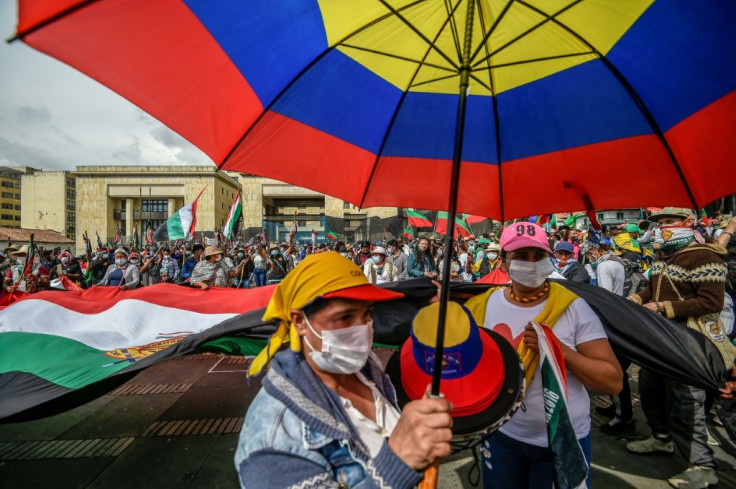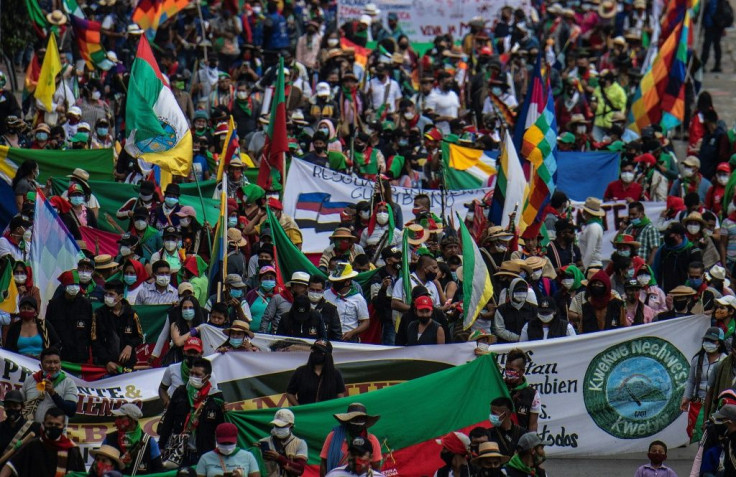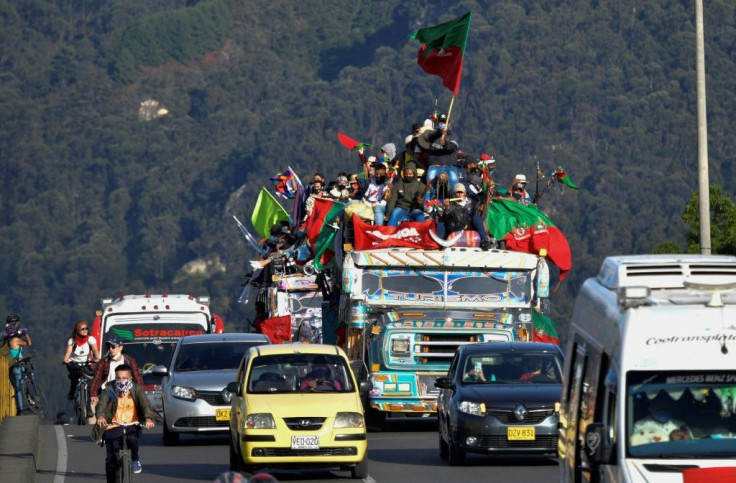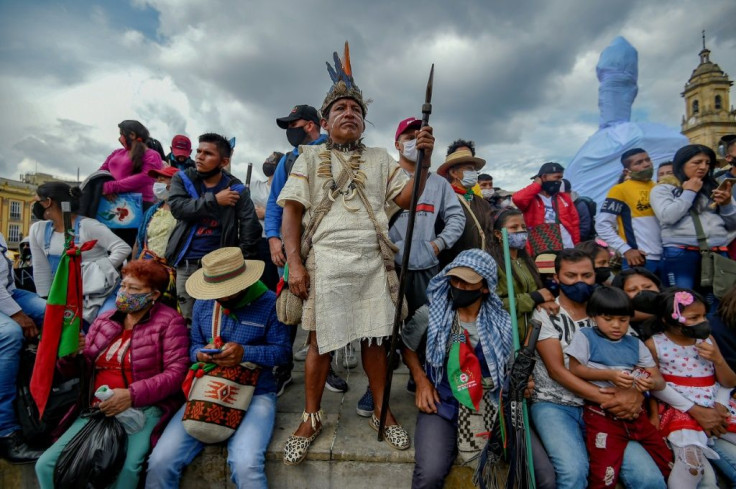Indigenous Colombians Protest Violence With Mock Trial For President
Thousands of indigenous Colombians staged a symbolic trial of President Ivan Duque in the country's capital on Monday to demand an end to growing violence on their land.
The demonstrators also want a say on major development projects, and for the full implementation of a 2016 peace plan that ended half a century of insurgency by the rebel Revolutionary Armed Forces of Colombia (FARC).

Colombia's southwest has a large indigenous population and has been one of the areas worst affected by a wave of violence which has resulted in at least 42 massacres this year, according to the United Nations.
Dozens of armed groups remain active in Colombia, fighting over the lucrative drug trade in the world's largest producer of cocaine.
Protestors gathered in Plaza de Bolivar, next to the presidential palace in Bogota, to the sound of drums and bugles.

Demonstrations began on October 10 in the southwest and gradually advanced to the capital, with approximately 7,000 people traveling by bus and sometimes by foot for nine days.
The indigenous groups arrived Sunday in Bogota to demand a face-to-face meeting with the president on the rise in violence from guerrillas and other groups financed by drug trafficking.

President Duque, a conservative, has not met the protesters, claiming he is avoiding crowds during the pandemic.
"Even if the president did not show his face, today we tell him that he has cowardly barricaded himself in," Hermes Pete, senior advisor to the Regional Indigenous Council of Cauca (CRIC), told AFP.
In response to Duque's absence, the protesters organized a symbolic trial, denouncing the government for what they say is a violation of their fundamental rights.

On Wednesday they will join the "national strike," an anti-government movement that began in late 2019.
Flanked by the traditional Indigenous Guard, who sported vests, radio telephones and staffs decorated with multicolored ribbons, the group managed to fill part of Plaza de Bolivar in one of the largest shows of strength in recent years from Colombia's indigenous people -- who make up 4.4 percent of its 50 million population.
"We want peace, equality, respect and for them to stop killing us," said Carmen Pito, 53.
"The government must listen to us and receive us, we deserve respect like everyone else," she said, walking with her cane amid shouts of support for the indigenous people as they passed through the city.
Faced with the severe economic crisis brought on by the coronavirus pandemic and a country on the brink of one million infections, the Colombian president expressed his annoyance at the "crowding", although he avoided referring to the request for a direct meeting with the protesters.
The government has rejected face-to-face talks, insisting that the political debate takes place in Congress.
Duque claimed his "spirit was open to dialogue," but only "without ultimatums or having to appeal to terms like trials."
He has faced numerous protests during his two years in office, prompted by alleged abuses by the armed forces, controversial economic and education policies, and a marked increase in violence against human rights activists.
His government is accused of not establishing order in territories left by FARC rebels, allowing new organizations funded by drug trafficking to grow in strength.
© Copyright AFP {{Year}}. All rights reserved.





















